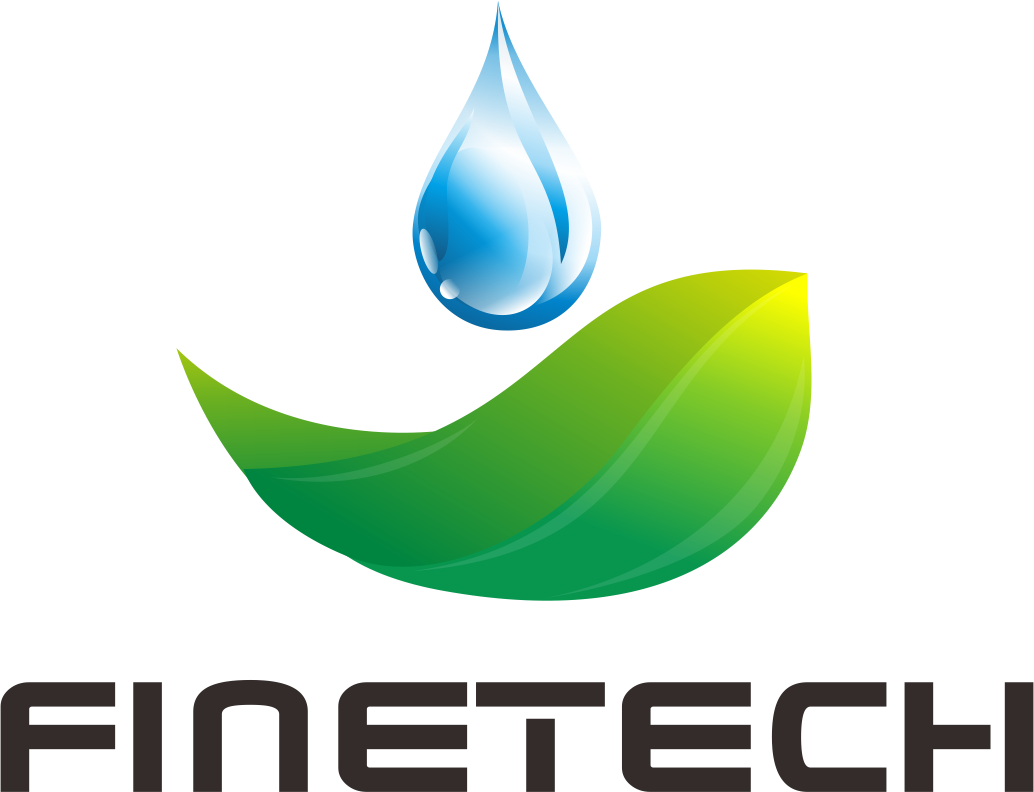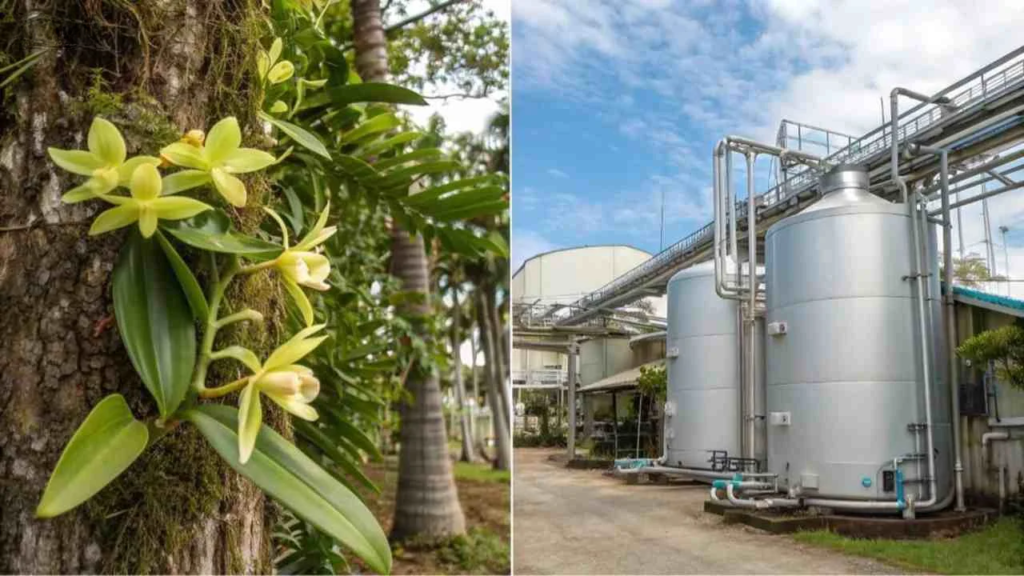Are your customers asking about your environmental impact? Worried your supply chain isn't meeting modern ethical standards? Sustainability is no longer a trend; it's a core business requirement.
Sustainability is important because consumers demand ethically and environmentally responsible products. For businesses, it enhances brand reputation, mitigates supply chain risks, and opens access to premium markets. Sustainable practices are becoming a key factor in supplier selection.
I discuss sustainability with my clients more and more each year. A seasoned buyer knows it’s a strategic issue. Major retailers are demanding sustainability data, and consumers are reading labels more carefully. A sustainable supply chain is now a true competitive advantage. Let’s look at how this applies to vanillin.
How is natural Vanillin sourced sustainably?
You see "natural vanilla" on a label, but the story can be complex. How can you be sure it is sourced responsibly?
Natural vanillin is sourced sustainably through agroforestry, which integrates vanilla vines with native trees. It also involves fair trade practices that ensure farmers receive fair wages and community support, creating a stable, ethical supply chain.
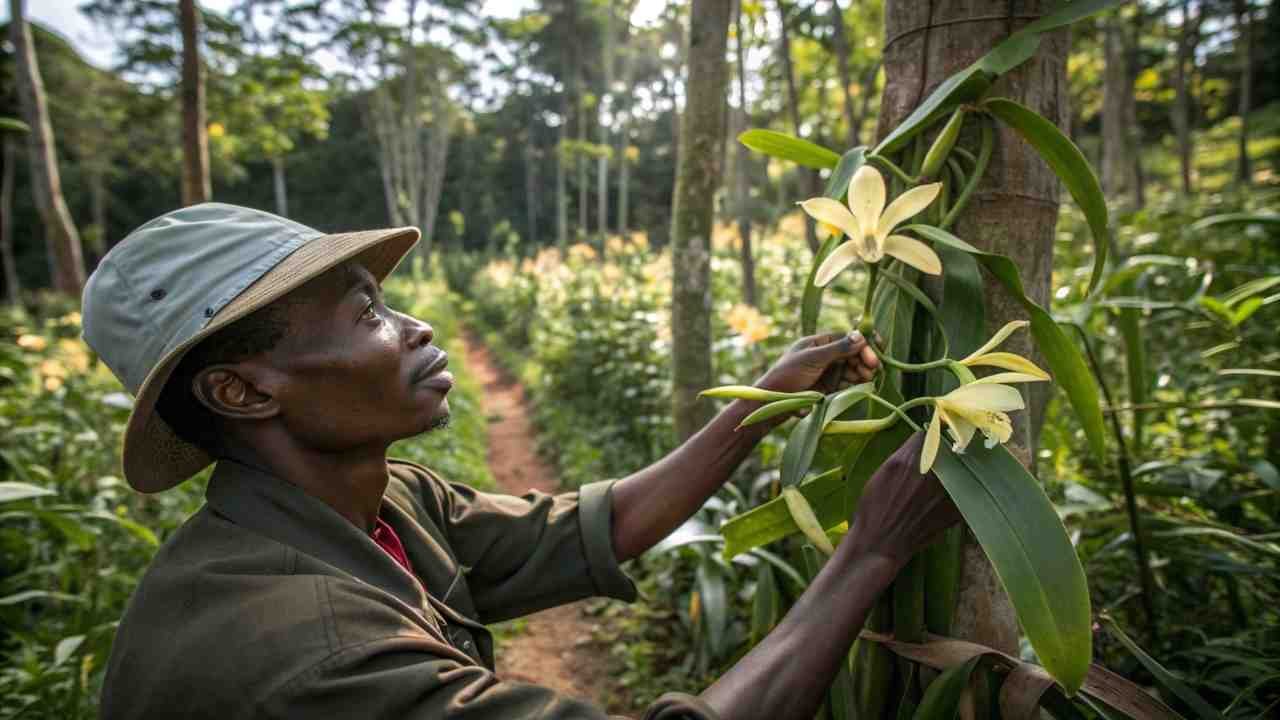
Sustainable natural vanilla sourcing addresses both environmental and social issues. Environmentally, it uses agroforestry1, where vanilla vines grow on native trees. This prevents deforestation and protects biodiversity. Socially, Fair Trade2 principles ensure that the small farmers who do the difficult work of hand-pollination receive a stable, fair price for their crop. This provides them with a reliable living wage and helps build resilient communities.
Sustainable vs. Conventional Natural Vanilla Sourcing:
| Aspect | Conventional Sourcing | Sustainable Sourcing (Fair Trade & Agroforestry) |
|---|---|---|
| Farming Method | Single-crop plantations, may involve deforestation. | Agroforestry, integrating vanilla with existing trees. |
| Environmental Impact | Lower biodiversity, soil erosion. | Protects forests, improves biodiversity. |
| Farmer Economics | Highly volatile prices, risk of exploitation. | Fair, stable prices and community investment. |
Can green production lower Vanillin’s carbon footprint?
You think of chemical production as smokestacks and pollution. Can an industrial product like synthetic vanillin ever be "green"? The answer is a surprising yes.
Yes, green production methods can significantly lower vanillin's carbon footprint. This is achieved by using renewable raw materials like lignin from wood instead of petroleum, improving energy efficiency in factories, and implementing advanced waste treatment.
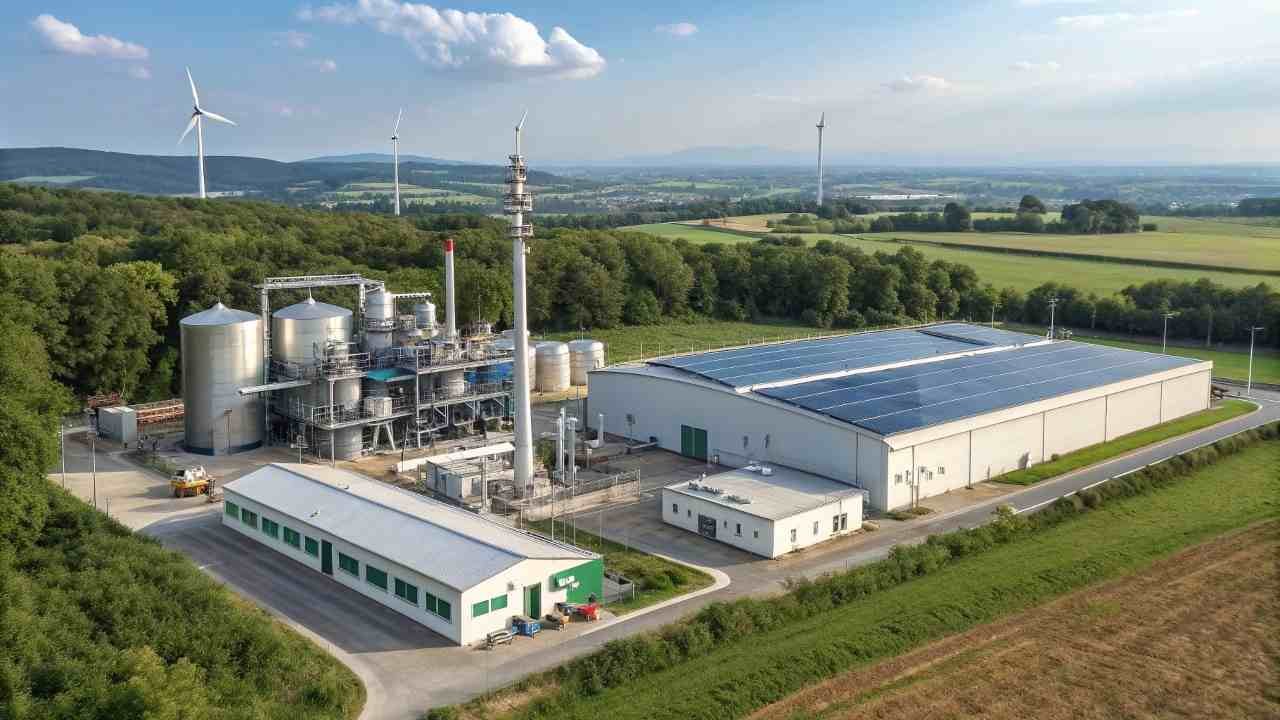
The story of synthetic vanillin is becoming much greener. The biggest change is a shift in raw materials. Instead of using guaiacol (from petroleum)3, innovative producers now use lignin4, a waste product from the paper industry. This replaces a fossil fuel with a renewable, plant-based source. Additionally, modern factories are far more energy-efficient, using heat-recovery systems and water recycling to reduce their overall carbon footprint. These efficiencies also lower production costs, creating a win-win situation.
Traditional vs. Green Synthetic Vanillin Production:
| Production Aspect | Traditional Method (Guaiacol) | Green Method (Lignin or other bio-based) | Sustainability Benefit |
|---|---|---|---|
| Raw Material | Petroleum-based (Guaiacol) | Renewable (Lignin from wood pulp) | Dramatically reduces reliance on fossil fuels. |
| Energy Use | High energy consumption. | More efficient, with heat recovery systems. | Lowers carbon footprint and operational costs. |
Are eco-friendly packaging options available for Vanillin?
You want to reduce your company's waste, but you need packaging that protects your product. Are you forced to choose between sustainability and quality?
Yes, the industry standard for bulk vanillin—the 25kg fiber drum—is already a highly eco-friendly option. These drums are made from renewable paperboard, are widely recyclable, and support a circular economy model, making them a sustainable choice.
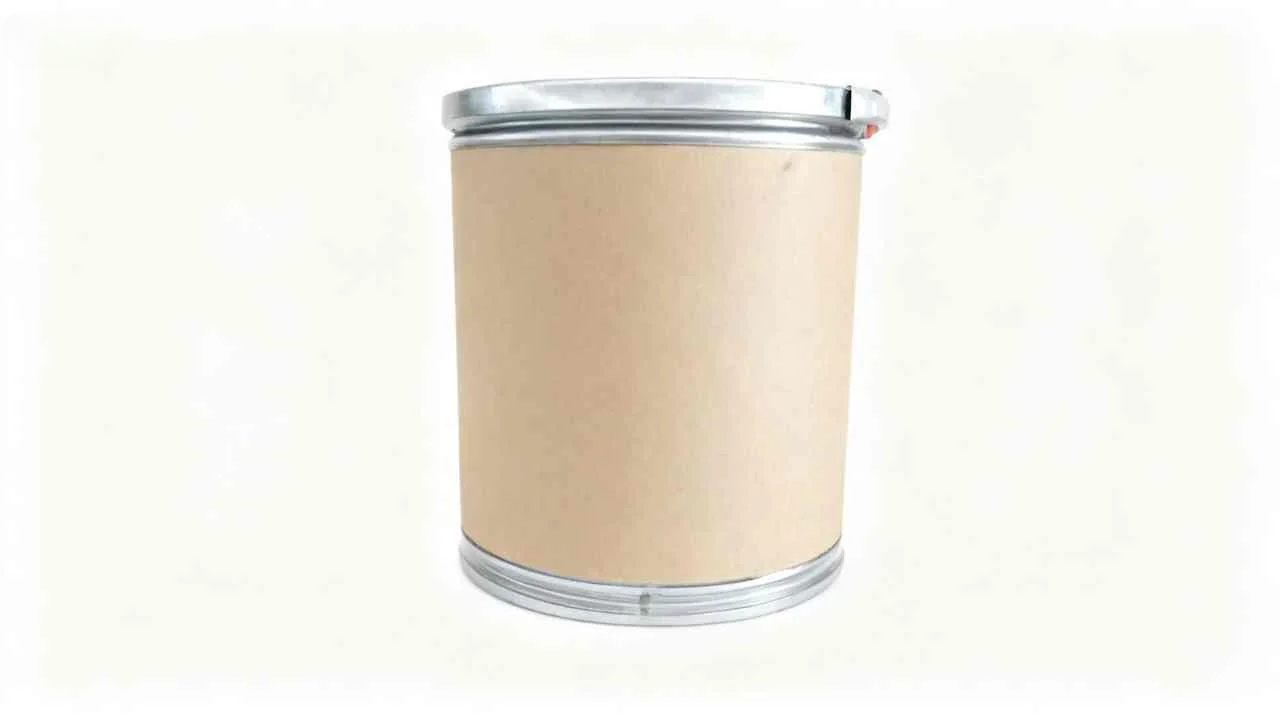
Fortunately, the standard bulk packaging for vanillin is already a great sustainable choice. The 25kg fiber drum is made primarily from fiberboard, a strong material produced from paper pulp, which is a renewable resource5. These drums often contain a high percentage of recycled content and are themselves widely recyclable at the end of their life. The steel rings used for the top and bottom are also among the most recycled materials on earth. This makes the fiber drum an excellent example of strong, effective, and sustainable industrial packaging.
Eco-Analysis of a 25kg Fiber Drum:
| Component | Material | Sustainability Feature |
|---|---|---|
| Drum Body | Fiberboard | Renewable, high recycled content, and widely recyclable. |
| Lid/Base Rings | Steel | Highly recyclable, part of a strong circular economy. |
| Inner Liner | Polyethylene (PE) | Protects product to prevent food waste. |
How does sustainability impact Vanillin’s market value?
You see a sustainably sourced product, and it often has a higher price. Is this just a marketing gimmick, or does it create real value for your business?
Sustainability directly impacts market value by allowing brands to make "green" or "ethical" claims. This enhances brand reputation, meets the demands of conscious consumers, and can justify a premium retail price, increasing the product's value.
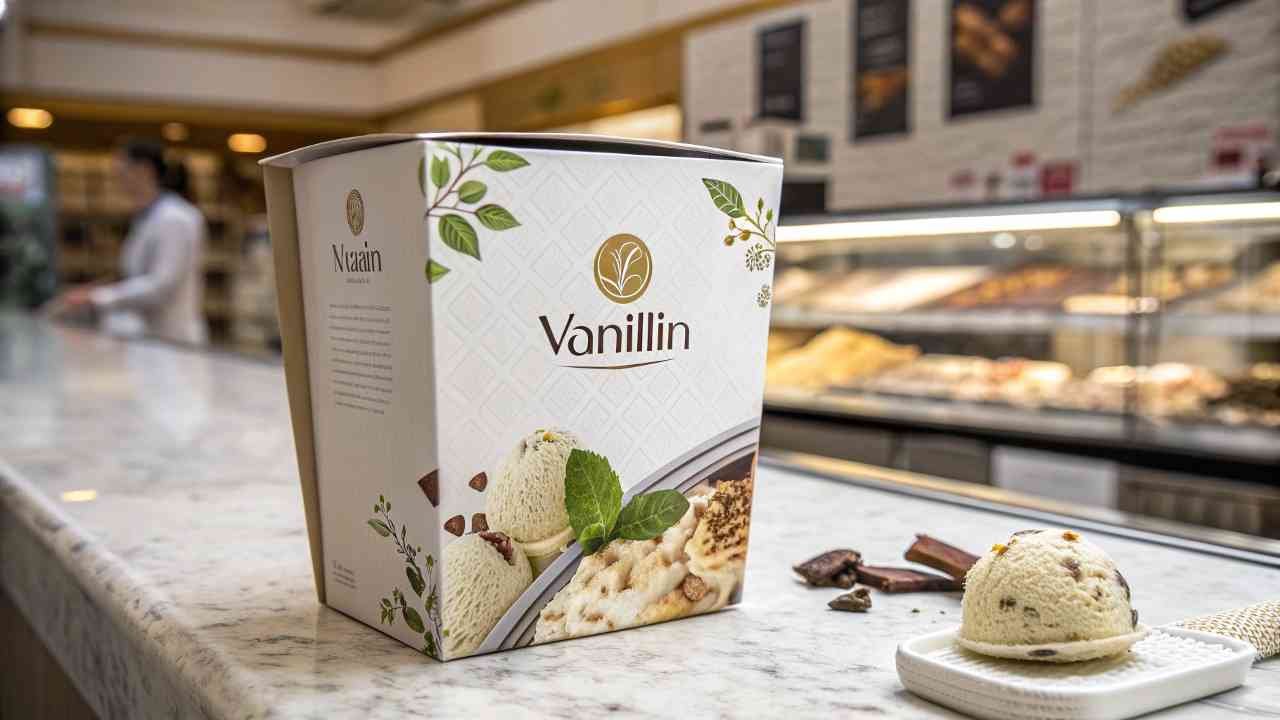
Sustainability adds tangible value to your products. For consumer-facing brands, using sustainably sourced vanillin allows you to make powerful "clean label" claims like "Made with Fair Trade Vanilla." This story resonates with modern consumers and can be the reason they choose your product over a competitor's. From a B2B perspective, a sustainable supply chain is a lower-risk supply chain6. It is more resilient to price shocks and social issues, which adds significant value and security to your business operations.
The Value Proposition of Sustainability:
| Aspect | Conventional Vanillin | Sustainable Vanillin |
|---|---|---|
| Consumer Perception | A standard ingredient. | A premium, ethical ingredient. |
| Brand Story | No unique story to tell. | Powerful story of environmental and social responsibility. |
| Supply Chain Risk | Higher exposure to price shocks and social issues. | Lower risk, more resilient and stable supply. |
Do buyers prefer suppliers with eco-certifications for Vanillin?
You hear a lot of suppliers making "green" claims. How do you know who to trust? Certifications are your best guarantee.
Yes, professional buyers increasingly prefer suppliers with recognized eco-certifications. Certifications like Fair Trade or ISO 14001 provide independent, third-party verification of a supplier's sustainability claims, eliminating greenwashing and ensuring genuine compliance.
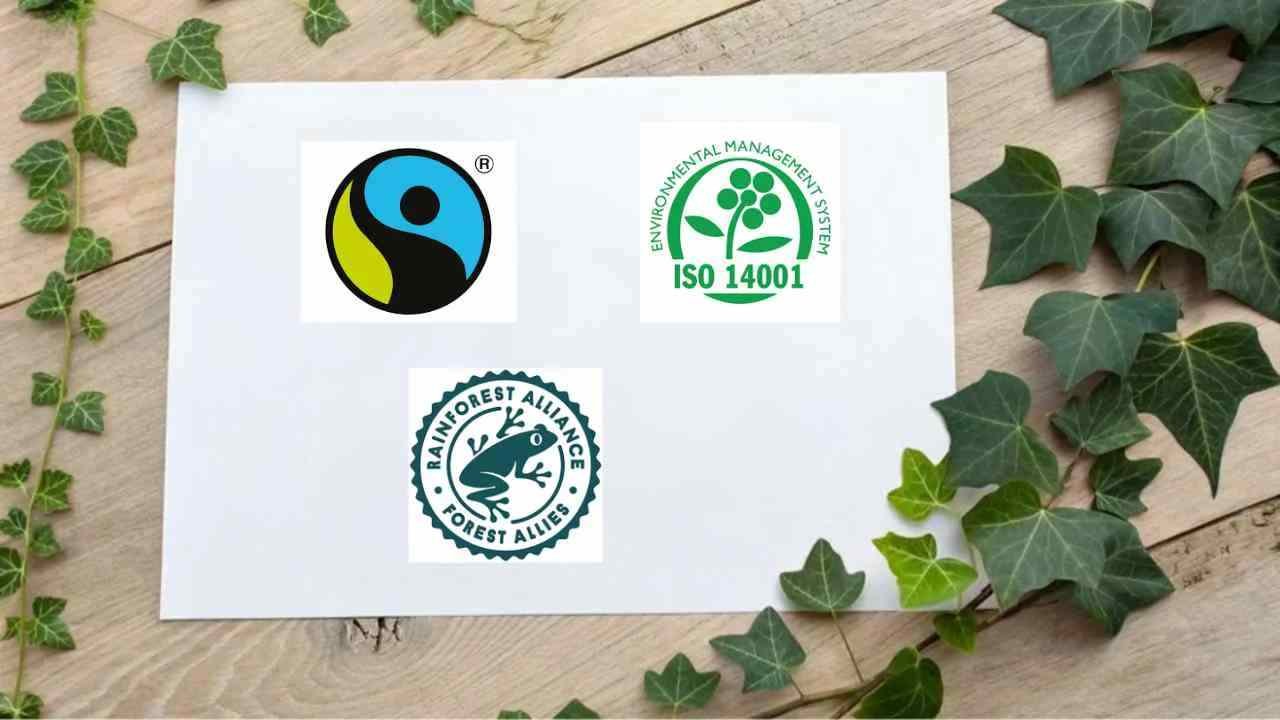
In a world full of "greenwashing," third-party certifications are the only way to verify a supplier's claims. For natural vanillin, certifications like Fair Trade7 (ensuring fair farmer pay) or Rainforest Alliance (protecting biodiversity) are key. For synthetic vanillin producers, ISO 14001 certification shows they have a robust system for managing their environmental impact. Major retailers often require these certifications from their suppliers, so choosing a certified partner is essential for market access.
Key Eco-Certifications and Their Meaning:
| Certification | Primary Focus | What it Guarantees a Buyer |
|---|---|---|
| Fair Trade | Social & Economic (Natural) | Farmers received a fair price and community premium. |
| Rainforest Alliance | Environmental (Natural) | Farmed in a way that protects forests and biodiversity. |
| ISO 14001 | Environmental (Synthetic) | The factory has a certified system to manage its environmental impact. |
Conclusion
Sustainability is now a vital part of the vanillin trade. It aligns with consumer values, builds stronger brands, and creates a more resilient and responsible supply chain for everyone.
-
Exploring this link will provide insights into how agroforestry enhances sustainability and biodiversity. ↩
-
This resource will explain the positive impacts of Fair Trade on farmers' livelihoods and community resilience. ↩
-
Understanding guaiacol's role can provide insights into the environmental impact of synthetic vanillin. ↩
-
Exploring lignin's use reveals how waste products can be transformed into valuable resources, promoting sustainability. ↩
-
Learn about renewable resources in packaging to make informed, eco-friendly choices for your products. ↩
-
This resource will provide insights into the advantages of a lower-risk supply chain, crucial for business resilience and stability. ↩
-
Explore this link to understand how Fair Trade certification supports farmers and promotes ethical sourcing. ↩
